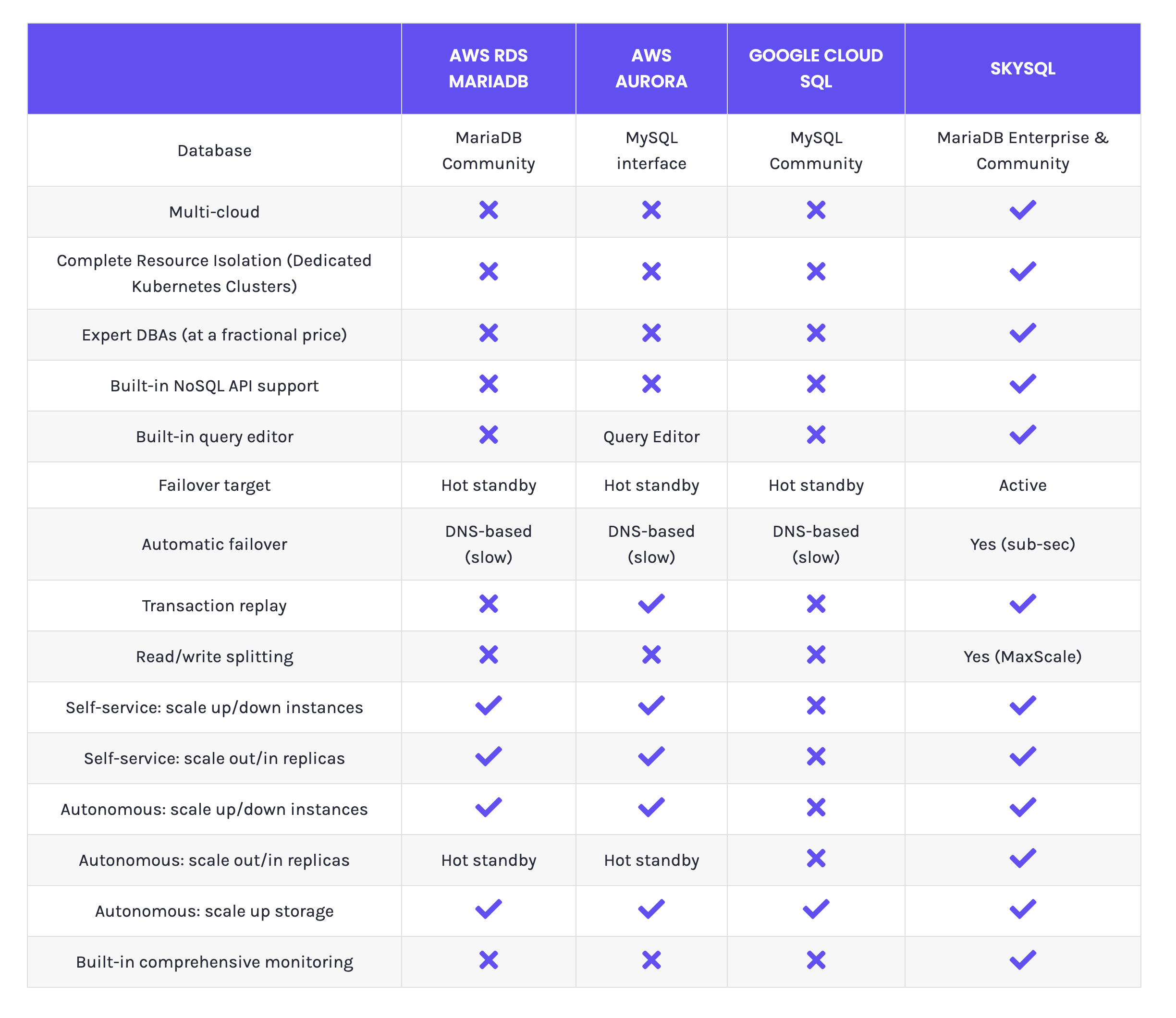SkySQL
Multi-cloud, serverless AI-driven DBaaS Platform

Serverless Mode
Instantly start building cloud-native and AI-driven applications without overspending
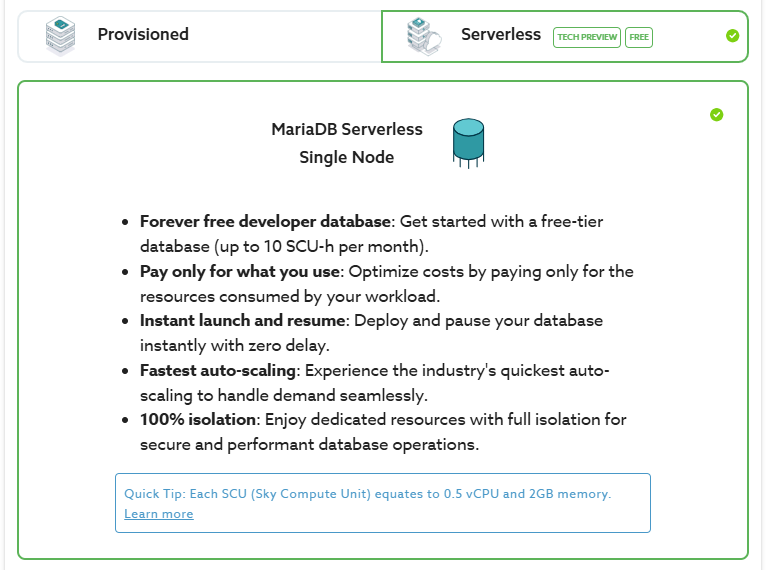
Adapt Instantly to Any Workload
SkySQL Serverless adjusts dynamically to workload demands, scaling from zero (at no charge) to peak capacity within milliseconds.
Smarter Cost Efficiency
Pay only for what you use. With SkySQL Serverless, there’s no need to overprovision or guess at capacity. Your billing automatically aligns with actual usage, making it ideal for flexible budgets and cost-conscious teams.
Forever Free Tier
Kick-start your development with SkySQL’s Forever Free Tier. Perfect for dev/test environments, it gives you access to the power of serverless databases without spending a dime. Experiment, build, and iterate freely.

Provisioned Mode
Provides fully managed DBaaS designed for businesses needing control over resources and configurations.
Consistent Performance
Stability of dedicated resources, ideal for production workloads needing predictable, always-on performance.
Fine-Tuned Control
Control resource allocation via the UI, APIs, or autonomous scheduling. Ideal for workloads with predictable daily, weekly, or seasonal patterns, ensuring readiness and efficiency.


Multi-cloud, multi-region.
SkySQL runs on Google Cloud, AWS and Azure, offering deployment flexibility across major cloud providers. Cross-cloud replication can be used to ensure failover protection while maintaining low-latency performance by deploying replicas within the same region across different clouds.


Continuous Availability and Autonomous Self-healing Architecture
Our advanced intelligent proxy ensures instant failover, load balancing, read-write splitting, and transaction replays, delivering seamless performance and high availability. Unlike competitors that rely on costly idle standby servers, our proxy uses load balancing to efficiently utilize standby resources, even in the absence of failures. While competitors’ DNS failover results in minutes of downtime and user disruption, our proxy provides failover instantly, ensuring zero downtime.
Instant and Transparent Failover: sub-second failover and redirect ensuring no disruption to end users.
Load balancing: load balance queries to active read replicas, supporting both ‘causal’ and ‘strong, global’ consistency models.
Transaction replays: ensure seamless failover by automatically replaying pending transactions on the new server, maintaining consistency and minimizing disruption.
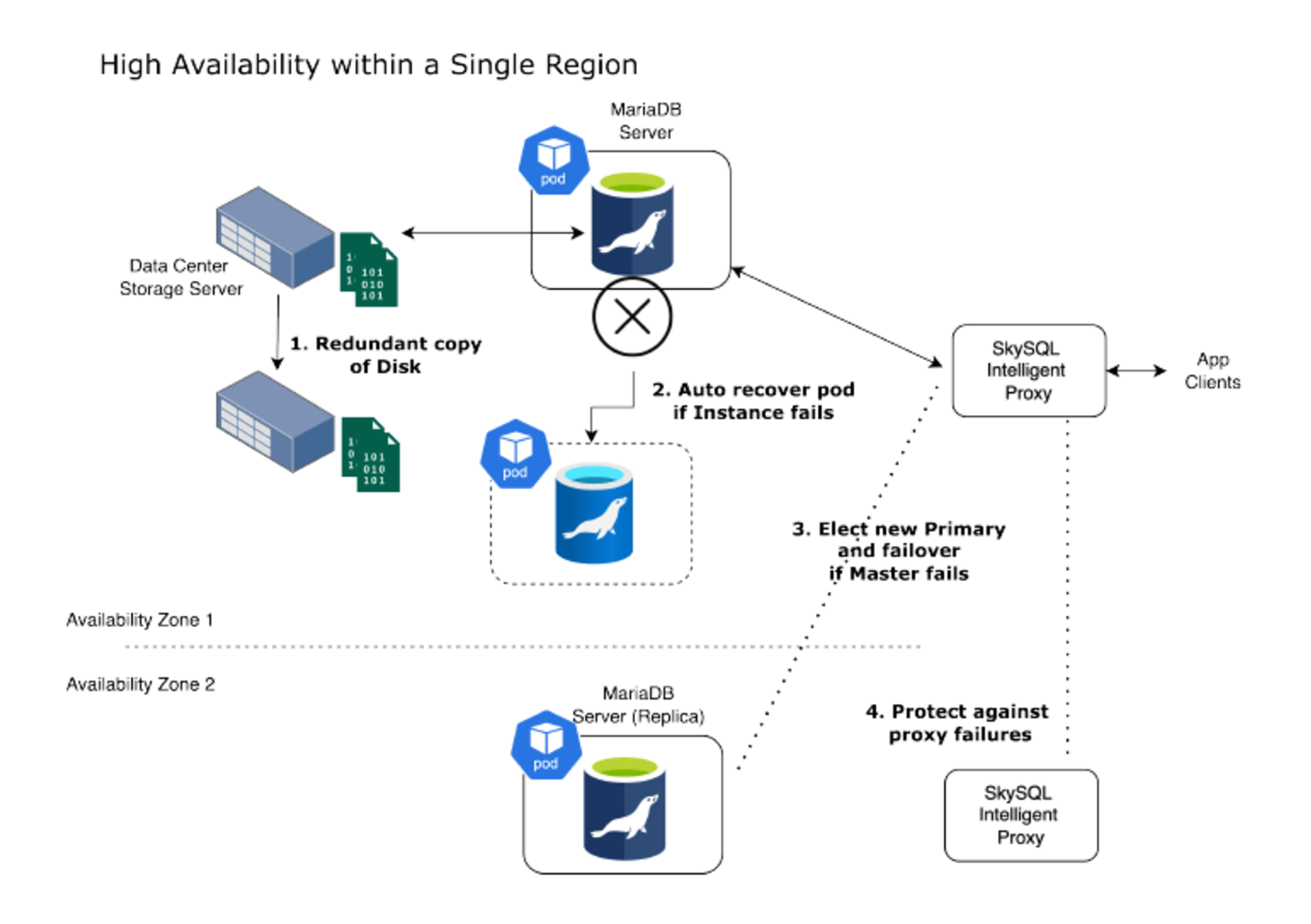
Comprehensive backup tools ensure high availability, even during cloud provider outages. Perform physical, logical, and incremental backups, take snapshots, back up to your own environment, and fully control your backup schedule—all tailored to your needs.
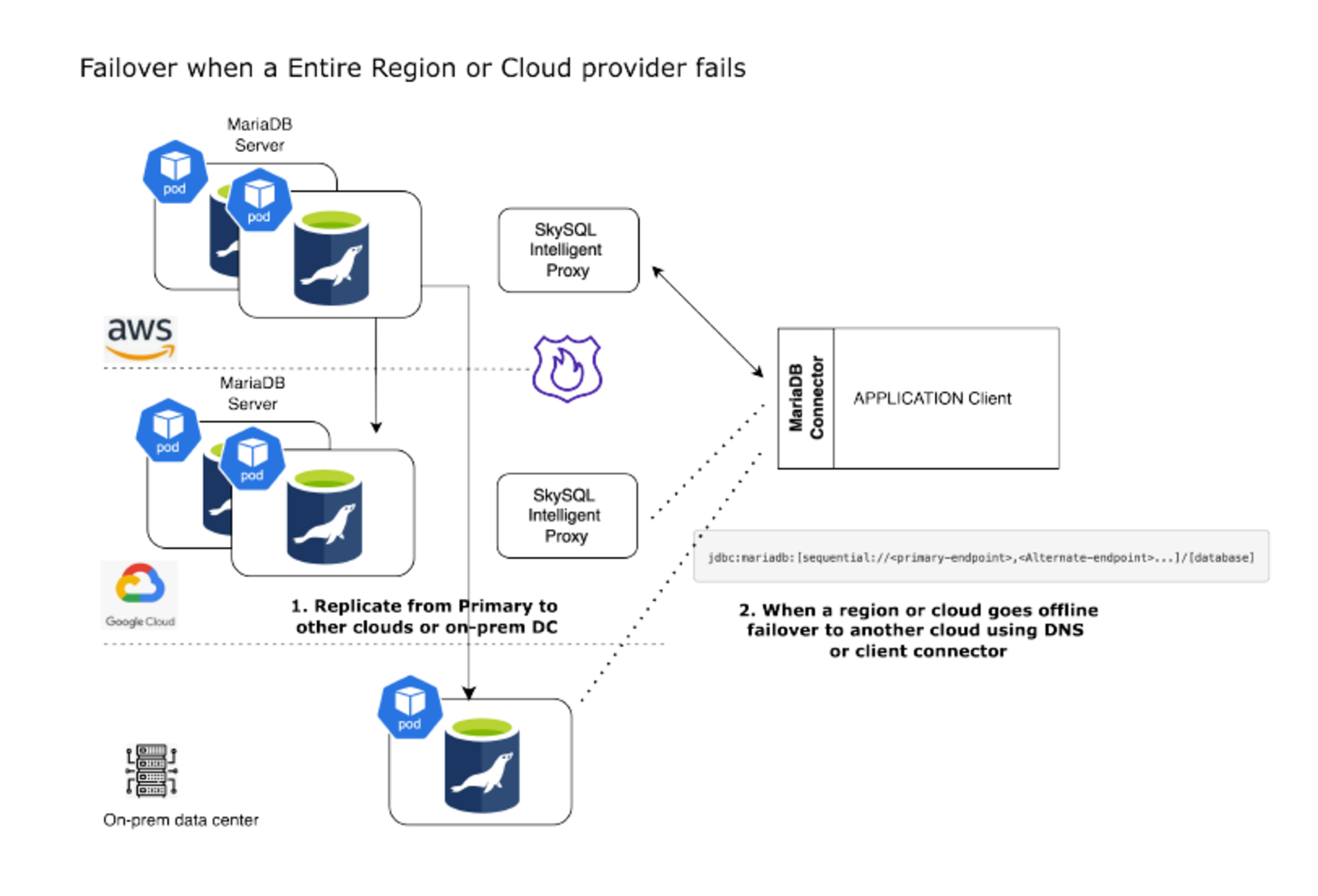
Flashback: Enables online point-in-time rollback when requested to undo recent changes such as accidental deletes or updates
SkySQL's enables automatic self-healing of failed cloud resources
Advanced Kubernetes Operator: Recovers failed nodes instantly by reattaching disks and can create new instances in different zones if needed.

Enterprise Security
SkySQL databases are secure by default, with end-to-end encryption and access restricted unless authorized
Encryption:
Data is encrypted both in transit and at rest, requires SSL/TLS client connections, and provides a certificate chain for verification.
AllowListing:
Databases are not publicly accessible, and admins can allow the IP addresses or ranges of IP addresses for any clients requiring access.
Firewall:
All access to customer databases goes through a network load balancer that prevents access from IPs that are not allowlisted.
Private Connections
SkySQL services can be configured for private connections using AWS PrivateLink, Azure PrivateLink, and Google Cloud Private Service Connect (PSC).
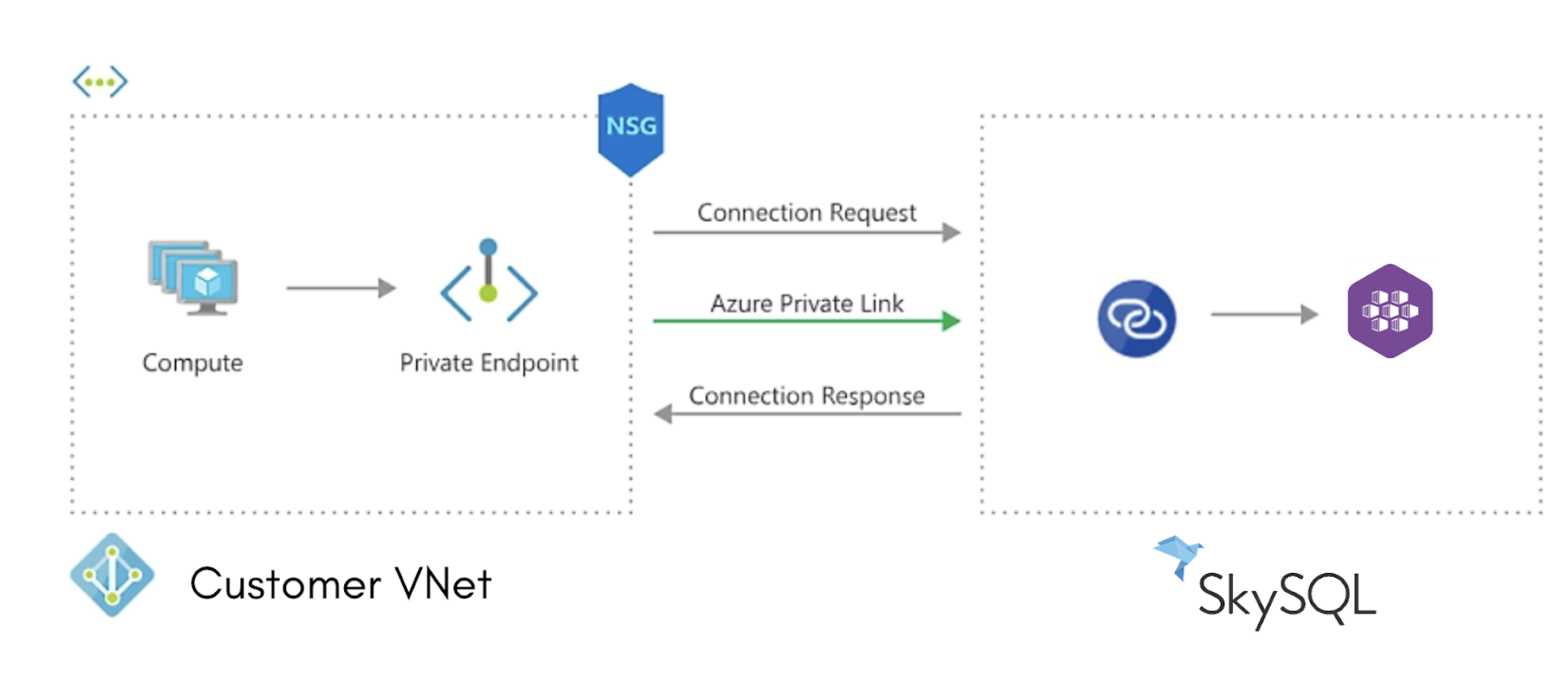
Portal SSO:
Customers can configure the SkySQL Portal to accept authentication with their SAML 2.0 IDP for SSO.

DBaaS Comparisons
Comparing Resilience, Scalability, Automation, and Monitoring Across Architectures and Workloads
